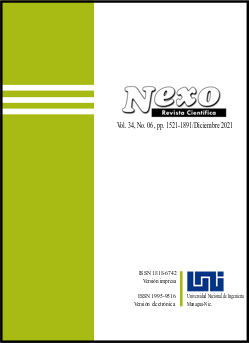Organization of coordinated functioning of various types of passenger transport in transport-interchange hubs
DOI:
https://doi.org/10.5377/nexo.v34i06.13160Keywords:
Railway transport, Suburban transport, Transport-interchange hub, Urban transportAbstract
The article deals with the organization of high-quality interaction of various types of passenger transport in the transport- interchange hub. Urban and regional interchange hubs are being studied. A methodology based on the use of quantitative methods and implemented with the help of software products (the developed program "Effective transfers" and the well-known simulation modeling programs PTV Visum, AnyLogic) is suggested. This method is applicable for any city and includes 3 stages. At the first stage, the number of passengers in the transport-interchange hubs who transfer from one type of urban public transport to another is predicted; the direction of passenger traffic is determined; urban routes that require schedule approval are chosen. At the second stage, the number of passengers who use the considered transport-interchange hub to transfer from suburban, intercity transport to urban modes of transport is predicted. At the third stage, the schedule of all types of transport is coordinated; the need for rolling stock is determined; passenger traffic is modeled and studied at the hub in order to rationally organize the planning structure of the transport-interchange hub. The obtained scientific results can be used in the design of a system of transport and transfer hubs and planning the placement of transport and social facilities on the territory of the transport-interchange hub.
Downloads
1347
Downloads
Published
How to Cite
Issue
Section
License
Copyright (c) 2021 Universidad Nacional de Ingeniería

This work is licensed under a Creative Commons Attribution 4.0 International License.
The authors who publish in Nexo Scientific Journal agree to the following terms:
- Authors retain the copyright and grant the journal the right of the first publication under the license Creative Commons Attribution License, which allows others to share the work with a recognition of the authorship of the work and the initial publication in Nexo Scientific Journal.
- Authors may separately establish additional agreements for the non-exclusive distribution of the version of the work published in the journal (for example, in an institutional repository or a book), with the recognition of the initial publication in Nexo Scientific Journal.
- Authors are allowed and encouraged to disseminate their works electronically (for example, in institutional repositories or in their own website) before and during the submission process, as it can lead to productive exchanges, as well as earlier and greater citation of published works.










